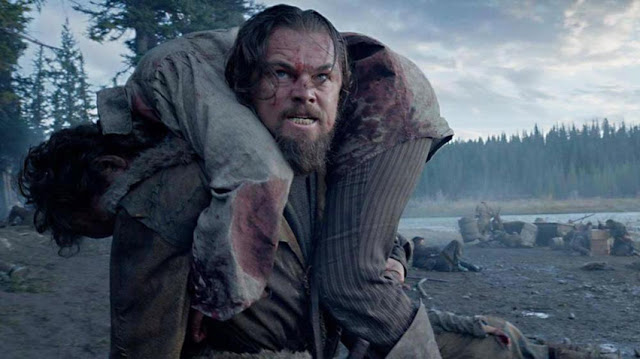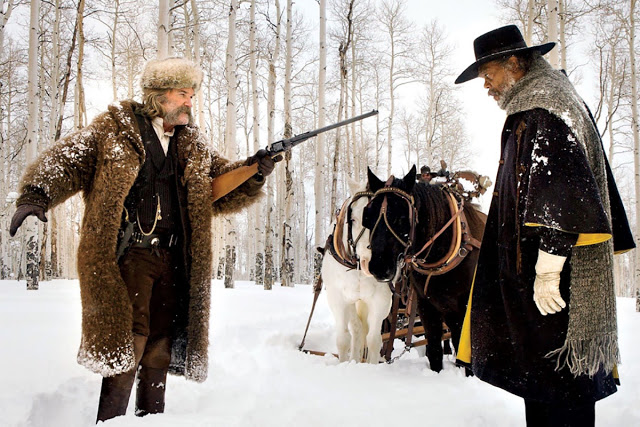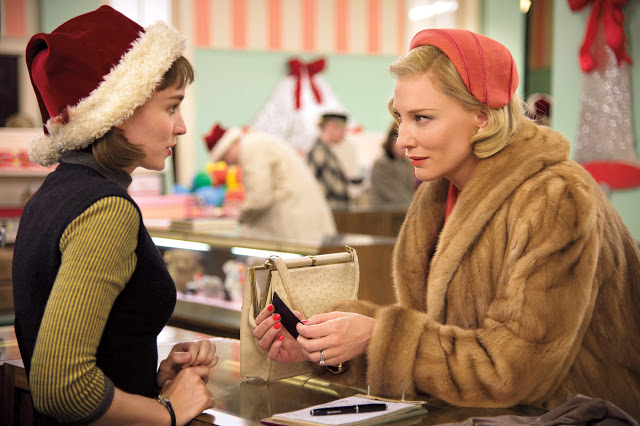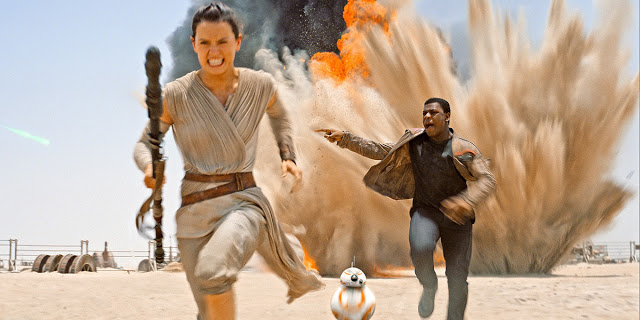The Revenant: In This Wilderness, It’s Men vs. Nature, and Man vs. Man
The Revenant defies categorization, not because it refuses to serve as a particular type of movie, but because it is so many movies at once. Both art film and action flick, both meditative drama and survivalist thriller, both historical fiction and contemporary allegory—the latest and craziest picture from provocateur Alejandro González Iñárritu wants it all. This level of naked ambition is rare in modern cinema, and it is tempting to praise The Revenant—a two-and-a-half hour adventure film with minimal dialogue and maximal craft—for simply existing. But look past its staggering audacity, and The Revenant reveals itself as a work of true duality, even beyond its mirrored ambitions. It is, in empirical terms, both a good movie and a bad one.
Let’s begin with the bad. Based on a novel by Michael Punke (Iñárritu wrote the screenplay along with Mark L. Smith), The Revenant‘s storyline is exceedingly slight. Set in the early nineteenth century, it follows a band of fur trappers in the American wilderness. Initially, there are roughly 30 of them, but after the native Arikara (dubbed “Ree”) spring an ambush—a characteristically bloody sequence filled with loud musket-fire and zooming arrows—their numbers are reduced to about 10, though only two are of any consequence. They are Glass (Leonardo DiCaprio), an inveterate tracker with a half-Pawnee teenage son, and Fitzgerald (Tom Hardy), a brusque trapper who is as unapologetically selfish as he is culturally insensitive. After Glass is severely wounded by a bear—more on that in a bit—he and Fitzgerald are separated from their unit; not one to loiter with an invalid, Fitzgerald murders Glass’s son and leaves the immobilized Glass for dead. The remainder of The Revenant focuses on Glass’sagonizing efforts to survive in the forbidding wild, driven by his need to enact revenge on his son’s killer. Read More




 The holiday season is a time for gifts, and in 2015, the multiplex delivered its usual assortment of delightful treasures and lumps of coal. Due to time and space constraints (OK, mostly time), the Manifesto is providing shortened, capsule-like reviews for the numerous theatrical releases we saw during the holidays. We’ll begin with three movies today, followed by an additional three next week.
The holiday season is a time for gifts, and in 2015, the multiplex delivered its usual assortment of delightful treasures and lumps of coal. Due to time and space constraints (OK, mostly time), the Manifesto is providing shortened, capsule-like reviews for the numerous theatrical releases we saw during the holidays. We’ll begin with three movies today, followed by an additional three next week.